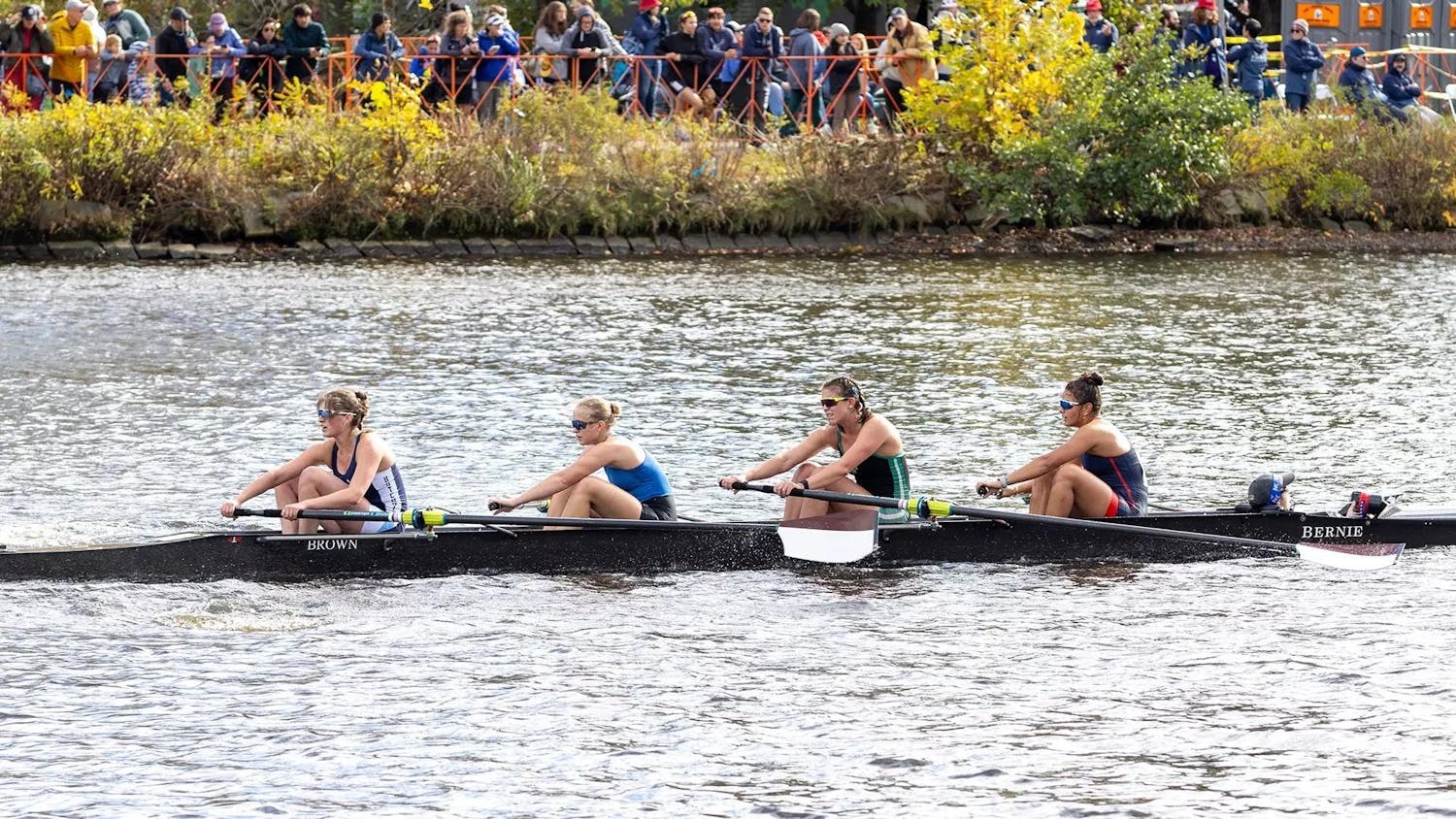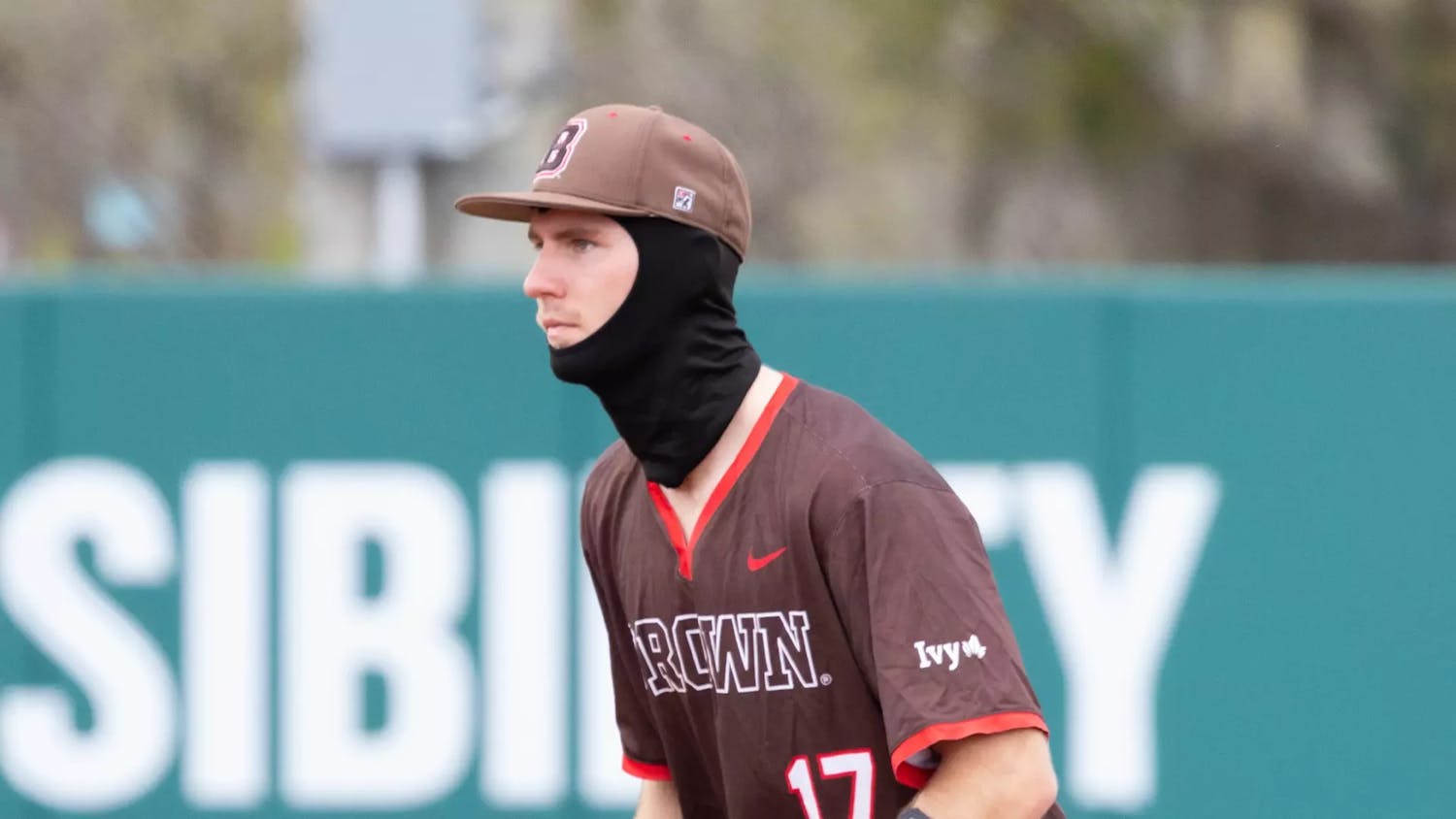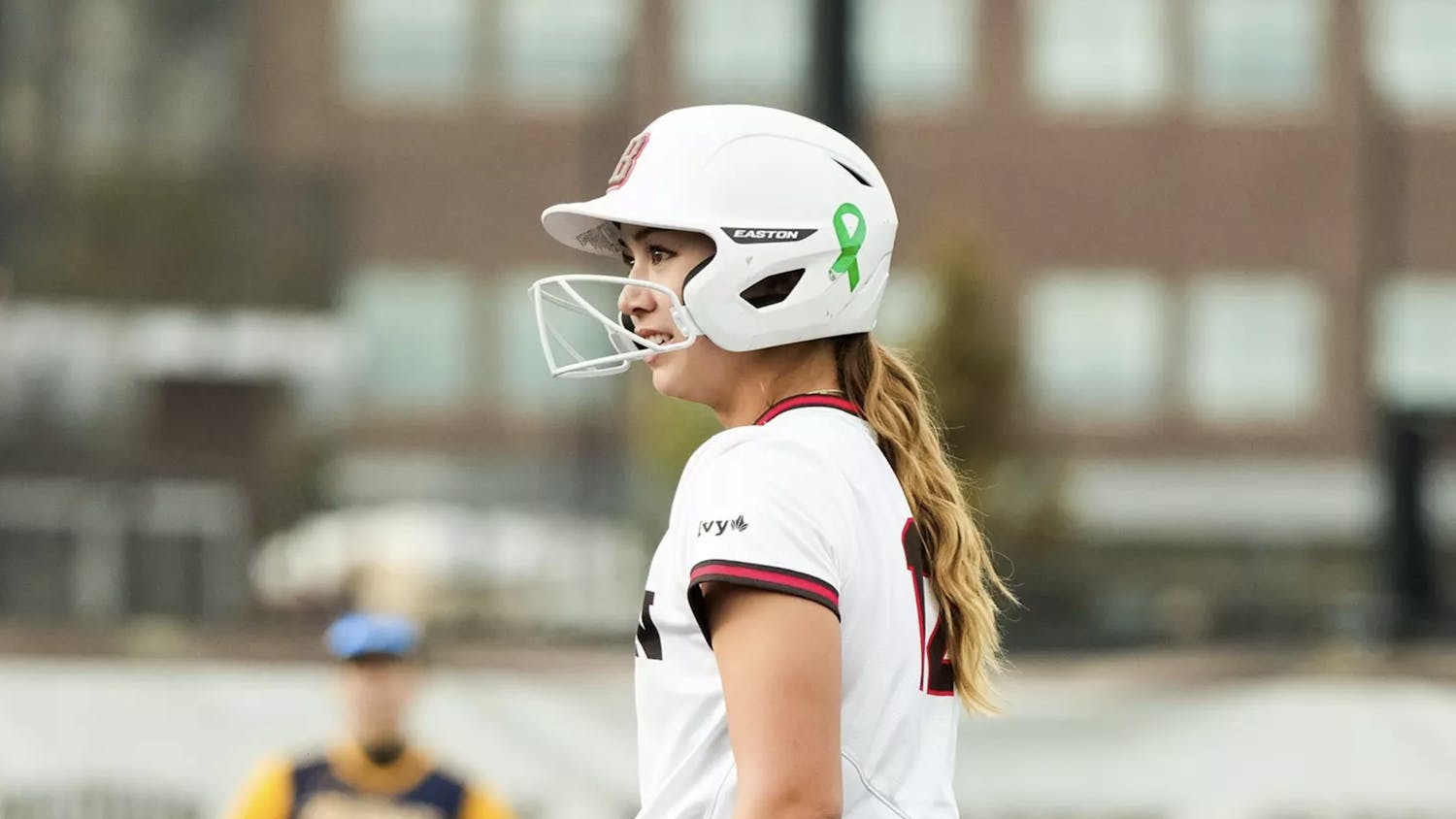Oren Lyons, faithkeeper of the Onondaga Turtle Clan and an inductee to the National Lacrosse Hall of Fame, addressed a crowded Perry and Marty Granoff Center for the Creative Arts Friday and detailed the history and culture of guh jee gawah hai — known colloquially as lacrosse. The renowned Native American leader spoke prior to Saturday's lacrosse game between the men's varsity lacrosse team and the U19 Iroquois National Team, which the Bears won 11-7 at Meister-Kavan Field. The Iroquois Nationals represents the six nations of the Iroquois League and are the only remaining Native American sporting team sanctioned to play in official international competition.
Lyons discussed a wide range of topics, including the history of lacrosse and global warming. Perhaps a testament to the physical prowess of lacrosse players, Lyons — now in his 80s — did not slow down for a moment of his two-hour lecture.
Though the lecture sometimes became somber — usually over reflections on the historic trials of Native Americans — Lyons kept the audience engrossed with stories from his childhood and his lacrosse career. In one anecdote, he told of his experience playing goalie against a man whose shot was so hard it had killed two previous goalies — a problem unique to an era when players took the field without helmets. Luckily, Lyons said when the shot came his way, it only broke two of his ribs.
Lyons spoke about how lacrosse games in his community transcend the physical, becoming more than just a sport. The games are traditionally played for someone or something in particular — to honor or help them, he said.
"We can play it for the nation, or we can play it for the world. We can play it for the buffalos, or we can play for the birds," Lyons said.
The speech focused on lacrosse and the Iroquois Nationals but also touched on a number of social issues. Lyons highlighted a traditional winter Iroquois game called Snow Snake to make a point about the changing climate. This winter is the first in his memory where it has not snowed enough to allow for a game of Snow Snake, he said.
Environmental issues seemed to be at the core of Lyons' political consciousness. In addition to the warnings about climate change, he criticized the historical attacks on the native flora and fauna of North America by European settlers. When settlers struck out West, there were "over 70 million buffalos," Lyons said. But that number fell to as low as 36 at one point, he added.
Despite the occasional reality check, Lyons' endless collection of anecdotes about lacrosse and the Iroquois Nationals kept the mood light and the crowd laughing. He said he was upset he had forgotten to bring his wooden stick, which would have been a better demonstration of what real lacrosse is like than the "tupperware" today's players use.
Lyons also talked about Native American contributions to American history. He mentioned that Native Americans fought on both sides of the Revolutionary War and displayed a flag originally commissioned by George Washington that the Iroquois Nationals took as its official flag when it first entered international competition.
The game between Brown and the Iroquois Nationals the following afternoon was a competitive battle. Though Brown controlled the majority of the game, the Iroquois came out of the gate strong, jumping out to a 2-0 lead early. Brown Head Coach Lars Tiffany '90 said the Iroquois team deserves a lot of credit for how it played. In addition to not being able to practice as often as the Brown team can, most of the Iroquois players are two to three years younger than their opponents on Brown's team, Tiffany said.
Only players 19 years old and younger can play on the U19 Iroquois national team. The official Iroquois National team has successfully competed on the international level since 1987 — the team currently holds the fourth position in international lacrosse rankings, behind only Canada, the U.S. and Australia.
But as a team that does not have the full rights of a sovereign nation behind them, the Iroquois Nationals faces distinct disadvantages that other teams do not. After the 9/11 attacks, officials at the European Union decided to stop recognizing Iroquois passports, and the team was unable to attend the 2010 World Lacrosse Championship in England.




